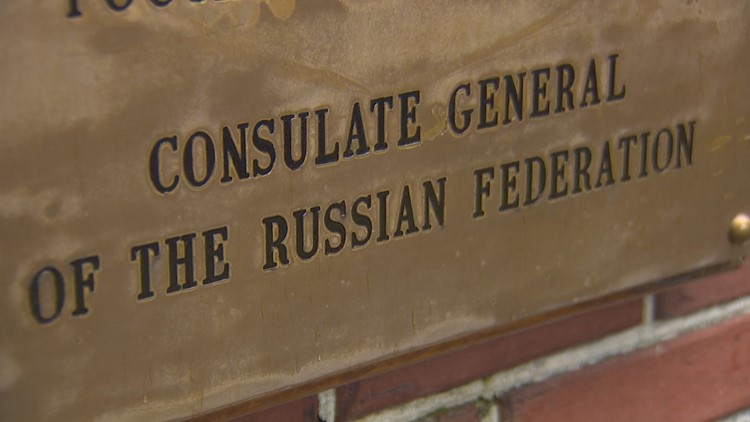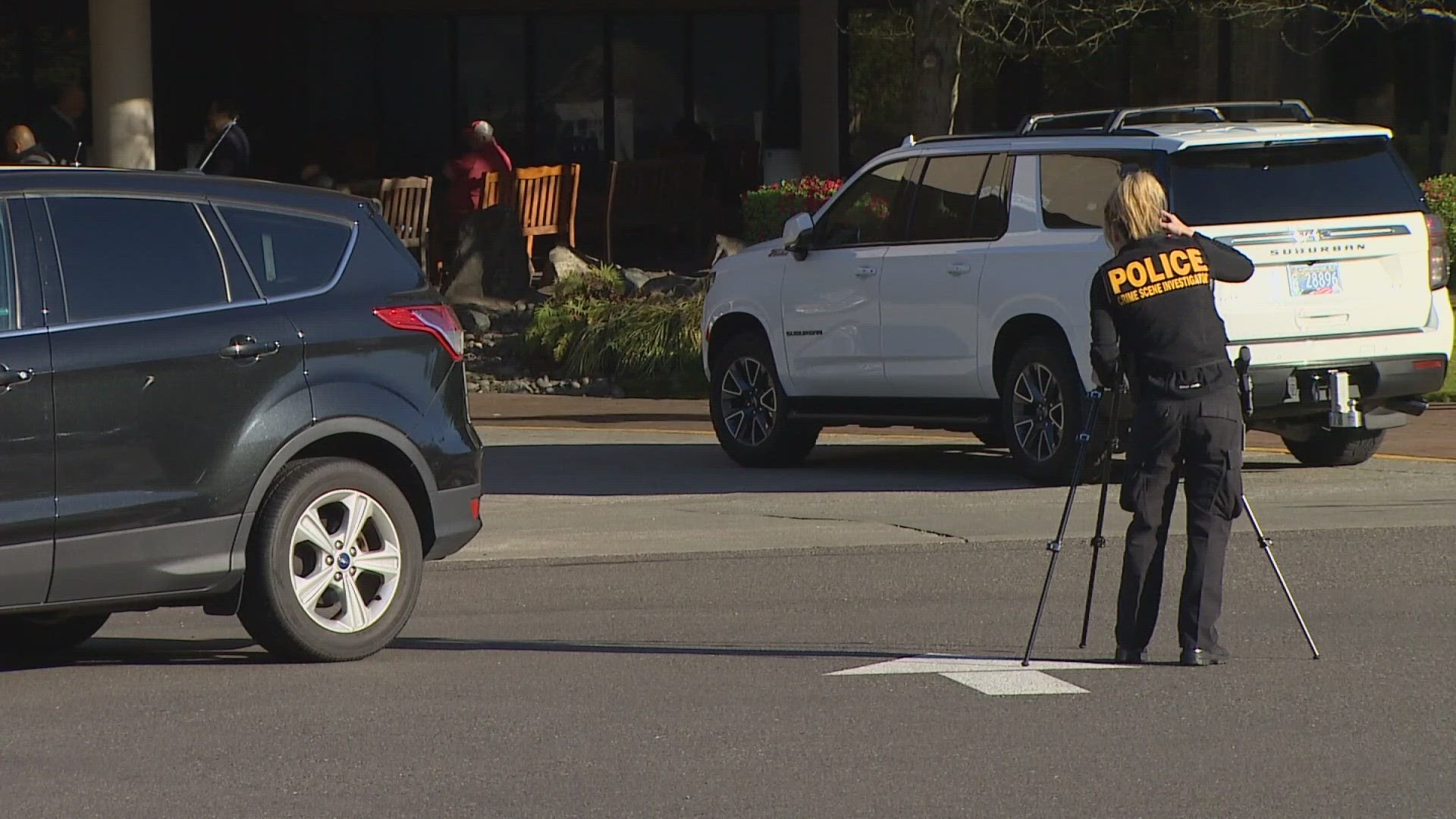The Russian consulate in Seattle has until April 2 to close after the White House ordered the consulate to shut down along with the expulsion of 60 Russian diplomats and intelligence officers.
The actions come as part of a coordinated response by 14 European nations to also expel Russian diplomats over the alleged poisoning of a former Russian spy in Britain.
“I think the step today is an important step to suggest that; one, we take these threats seriously, and two, we stand with our allies,” said Congressman Derek Kilmer, D-Washington, co-chair of the UK caucus.
Analysts describe the move as the toughest action taken against Russia by President Trump, so far.
“Today’s actions make the United States safer by reducing Russia’s ability to spy on Americans and to conduct covert operations that threaten America’s national security,” said a White House statement, in part.
Administration officials said its decision to target the Seattle consulate results from the location’s proximity to a submarine base and Boeing headquarters.
“A country that has a consulate here is certainly going to take notice of military and defense installations and it would certainly be logical to assume that they were likely collecting intelligence on those areas,” said Naveed Jamali, a former FBI double agent who worked against Russian military intelligence.
Jamali said the expulsion of 60 Russians may not have a significant impact in shutting down intelligence gathering. However, he believes the coordinated effort by allies across the west does send a strong message to the Kremlin.
“The goal here is to avoid escalation,” said Jamali. “Now, I don’t think the Russians were caught by surprise. Usually, the way that this happens is they’re given prior notice, one would hope this ends it and it doesn’t go tit-for-tat, but the Russians, depending on how they feel about this, they may react and do something that could escalate this situation.”
Russia already has vowed to retaliate, taking to Twitter to ask users for ideas.
“What US Consulate General would you close in Russia, if it was up to you to decide,” read a tweet by the official twitter handle for Russia’s embassy in the U.S.
Meanwhile, lawmakers in the United States call Monday a good start, but add more needs to be done to deter Russian aggression.
“The uncomfortable truth is that the United States is not doing everything we can and should be doing to protect our national security in this area," Rep. Adam Smith, D-Washington, said in a statement as ranking member of the House Armed Services Committee.
“This is really only step one of many necessary steps to demonstrate that we are serious about their movements to attack Western democracies,” said Rep. Denny Heck, D-Washington who serves on the House Intelligence Committee.
“Sanctioning the Russian oligarchs who are connected to organize crime and help finance these criminal acts on Putin's behalf is becoming increasingly urgent.”
Congressman Heck said he’s leading a bipartisan effort to ensure Russian sanctions are fully implemented by the executive branch.
Congressman Kilmer said when he returns to Washington D.C. he will continue to push for his legislation to bolster cybersecurity and protect against future elections interference and meddling.
“I think this is something that requires action. The reality is we have an election coming up and maintaining the integrity of American elections absolutely should be a priority,” said Kilmer.
Congressman Kilmer, sponsor of the bipartisan Honest Ads Act, believes campaign finance laws need to be updated to keep pace with technology. His legislation would require disclosure for internet ads and add new rules to better combat outside political influence funded by foreign nationals.
Kilmer has also proposed bipartisan cybersecurity legislation to enlist the help of the National Guard, particularly the Washington National Guard, to fight growing threats. His bill would create specialized cyber units to help individual states prevent against potential attacks.
“Let’s use their expertise, let’s use their existing relationships because they’re already involved in emergency management,” said Rep. Kilmer. “They already have relationships with a lot of our critical infrastructure, with our local governments, with our state government, with our utilities. Let’s leverage those capabilities and ensure that they’re able to both be an entity that can build up our cyber defenses but also to respond in case of a cyber attack.”



